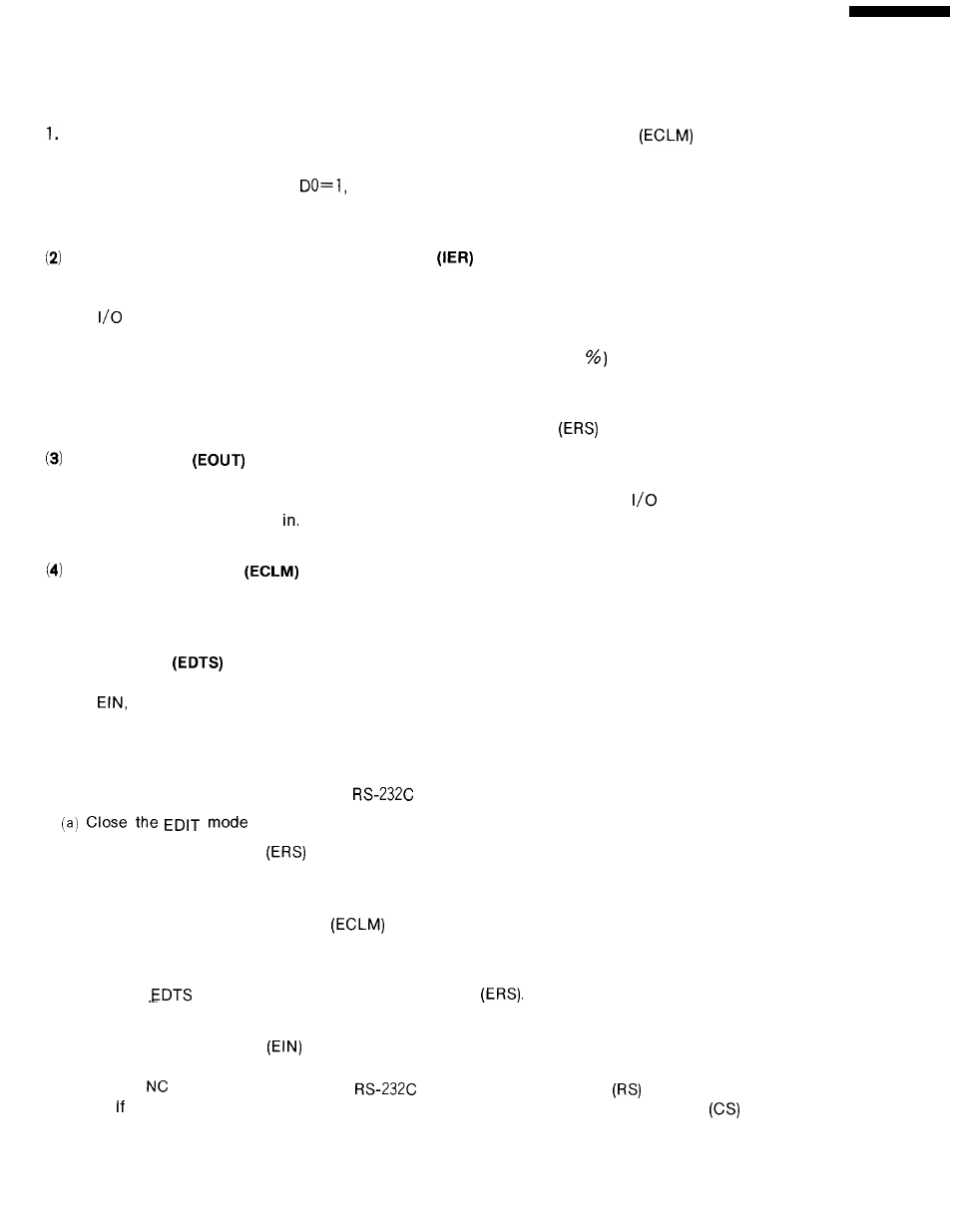Yaskawa i80M Connecting Manual User Manual
Page 153

NOTE
If the same O number is already registered, use the external memory clear
input,
which is described later, to erase the program and then perform the above procedure.
2. However, if parameter pm3005
erase the already registered O number and then ex-
ecute the program storage function.
If pm3005 DO=O, a warning condition occurs so that the
input stops.
External Verification (EVER) Input and Input Error
Output
When the EVER input is closed in the label skip state, the system compares the external part
program data against its counterpart in the NC part program memory via the interface defined
by the
equipment no matter what mode the NC is in.
In this case, programs having the
specified O number are checked.
However, when the data in a number of part programs are
checked, the system checks all data between the first EOR code (ER or
and the last EOR
code in a lump and therefore does not stop at the end (M02 or M30) of each program.
If any disagreement is found in the check, the warning (WARNS) output signal is closed.
This error output signal is cleared and opened when the external reset
input turns ON,
External Output
Input
When the EOUT input is closed in the label skip state, all the part program data registered in
the NC part program memory are delivered out via the interface defined by the
equipment
no matter what mode the NC is
You cannot selectively output part programs having a spe-
cific O number.
External Memory Clear
Input
When the ECLM input is closed in the label skip state, all the part programs stored in the NC
part program memory are erased no matter what mode the NC is in. You cannot selectively
erase part programs having a specific O number.
(5) Editing State
Output
While the machine executes the input, verification, output, or memory clear function with the
above
EVER, EOUT, or ECLM input closed, the EDTS signal is closed. This signal opens
upon completion of the above function execution.
(6) Typical Use and Time Chart
Typical part program input (storage), verification, and memory operation sequences are indi-
cated below, They are performed via the
interface using the DC code.
(b) Close
the external reset
input.
--- The program pointer then returns to the beginning of the currently selected part prog-
ram, placing the machine in the label skip state.
(c) Close the external memory clear
input.
--- The machine then erases all the part programs.
During erasure function execution, the
EDTS output is closed. The EDTS opens upon completion of erasure.
(d)
With the
“open” signal, open the external reset
--- The machine is then placed in the label skip state.
(e) Close the external input
signal,
--- The EDTS then closes.
(i) The
equipment turns ON the
interface request-to-send
signal.
(ii) the remote equipment is ready for transmission, it returns the clear-to-send
signal to the NC.
153
